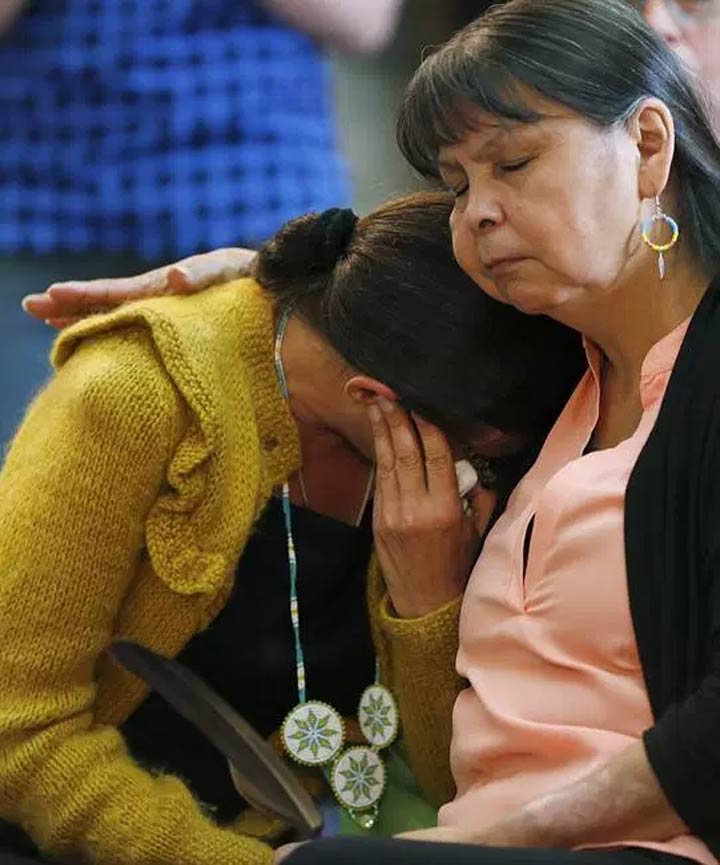Across the nation, survivors of the ’60s Scoop are reacting to the news of a national settlement in which Ottawa will pay up to $750 million in compensation to those taken from their homes as children.

For Sherri Swidrovich of Saskatoon, being separated from her natural family is still painful to talk about.
READ MORE: Regina ‘60s Scoop victims share their stories
When she was nine, Swidrovich and six of her siblings were taken from their home and separated, never to return again.
“The day that we were taken when our grandfather was looking after us, he was very upset and of course he couldn’t say a lot because he didn’t speak English,” Swidrovich said.
“We were just kinda bewildered because we had no power as little children and our mother wasn’t home.”
They were placed in seven different non-Indigenous foster home across Saskatchewan as part of the ’60s Scoop.

Get daily National news
Being separated from her natural family affects her to this day.
“There is a constant longing for that connection,” Swidrovich said.
“Even though foster homes that I was in the care of in later years were very, very good, especially the last home I attended – that separation and that longing never goes away.”
READ MORE: Ottawa pledges $800M for ’60s Scoop victim compensation, reconciliation foundation
Time together, said a tearful Swidrovich, that can that can never be made up.
“For some of my younger siblings, they don’t even remember our mother and that has stayed with her – her entire adult life.”
It’s a dark chapter in Canadian history where Aboriginal children where taken by welfare authorities and placed in foster care or adopted by white families between the 1960s and 1980s.
The agreement is aimed at helping to heal families and each survivor will receive between $25,000 to $50,000 along with a promise to end “a terrible legacy.”
“I think it’s a good start – I think it will make a difference for some people but mostly I think it’s good because it will start and carry on an important conversation.”
Approximately 20,000 ’60s Scoop survivors are set to receive compensation, a settlement even their children say is not about the money.
“It’s that public acknowledgement that this did happen. A – as a piece of educating the Canadian public that it did happen, and B – making an apology for that because we know that that wasn’t best practice even if it was perceived to be best practice at the time,” Sherri’s son Jaris Swidrovich said.
For some the announcement comes too little, too late but for Sherri among the hurt is also hope.
“I think there will be things that will come out of it that promote healing and reconciliation and much needed education about it.”









Comments